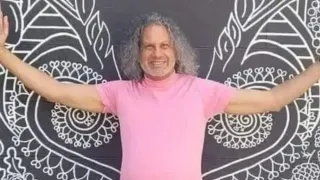
3 hours ago
Gay Venezuelan Makeup Artist Begins New Chapter After Prison Ordeal
READ TIME: 3 MIN.
Andry José Hernández Romero, a 32-year-old Venezuelan makeup artist and actor, found himself at the center of an international human rights controversy after seeking asylum in the United States in 2024. Fleeing Venezuela to escape persecution tied to his sexual orientation and political beliefs, Hernández Romero hoped for refuge but instead became the victim of a U.S. government crackdown targeting alleged members of the Venezuelan prison gang "Tren de Aragua" .
Hernández Romero’s troubles began when he surrendered at the San Ysidro Port of Entry in August 2024 and requested asylum. Soon after, U.S. Customs and Border Protection flagged him as a supposed gang member based solely on two tattoos on his wrists, each featuring a crown above the words "Mom" and "Dad." Officers cited a Department of Homeland Security validation guide, which claimed that crown tattoos were linked to Tren de Aragua. However, experts and journalists have since discredited this method of identification, noting that the gang does not typically use tattoos as identifiers .
After his initial detention in San Diego’s Otay Mesa Detention Centre, Hernández Romero was moved to Webb County Detention Centre in Laredo, Texas, as his asylum case remained unresolved. On March 15, 2025, without the opportunity to contest the allegations, he was summarily deported alongside hundreds of other Venezuelan and Salvadoran men to El Salvador’s notorious Terrorism Confinement Center . Legal experts and advocates maintain that these actions constituted a violation of due process, as many of the detainees—like Hernández Romero—had no criminal record or verifiable links to criminal organizations .
For four months, Hernández Romero and others were held incommunicado in harsh conditions, denied contact with their families and legal representation. Advocacy groups, including the Immigrant Defenders Law Center, condemned the detentions and called for accountability, arguing that the mass deportation and imprisonment were based on unsubstantiated and discriminatory criteria .
On July 18, 2025, a high-profile prisoner exchange between the United States and Venezuela resulted in the release of Hernández Romero and other Venezuelan detainees from CECOT. The exchange also saw Venezuela release American citizens and lawful permanent residents held as political prisoners. Upon arrival in Venezuela, Hernández Romero and the other men were greeted by family and supporters, marking the end of a harrowing ordeal .
Now back in Venezuela, Hernández Romero is focused on healing and reintegrating into his community. He has resumed his work in makeup artistry and performance, finding strength in the support of LGBTQ+ advocates both locally and abroad. His experience has drawn attention from international human rights organizations, who continue to press for reforms in asylum procedures and the treatment of LGBTQ+ refugees .
The case of Andry José Hernández Romero highlights ongoing challenges faced by LGBTQ+ asylum seekers, who are often subjected to additional scrutiny, discrimination, and risk of violence both in their home countries and within immigration systems abroad. Advocates argue that relying on superficial markers such as tattoos can perpetuate stereotypes and disproportionately harm marginalized individuals .
Legal organizations continue to pursue justice for Hernández Romero and others wrongfully detained, demanding that governments uphold the rights of LGBTQ+ people seeking protection. As Hernández Romero rebuilds his life, his story serves as a powerful reminder of the need for inclusive, evidence-based, and humane immigration policies.






